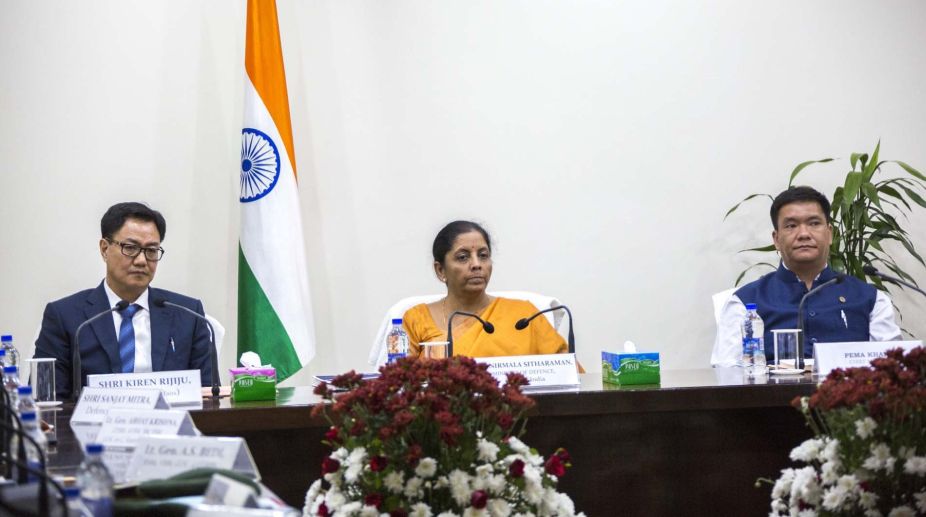Freedom of navigation in oceans is governed by rules-based order and no power or group of powers should have the right to change it unilaterally, Defence Minister Nirmala Sitharaman said on Tuesday.
Sitharaman’s comments are seen as an oblique reference to China’s growing military assertiveness in the disputed South China Sea.
Advertisement
China has territorial disputes over the South China sea with several countries of the region, and India along with other nations have been maintaining that freedom of navigation and over flight must be respected in the area.
“We belong to a multi-polar world, where we want to make it clear that freedom of navigation can never be unilaterally or arbitrarily questioned by anybody.
“And, we are very clear in saying that this is the rules-based order globally, and no one power, or a regional power, or no group of powers or no one, should have the right to unilaterally change this order,” she said.
The defence minister was addressing a gathering at the inauguration of the two-day ‘Indo-Pacific Regional Dialogue’, hosted by the India Navy in partnership with defence think-tank National Maritime Foundation (NMF) at the Manekshaw Centre here.
Navy Chief Admiral Sunil Lanba, Sri Lanka’s Chief of Defence Staff Admiral Ravindra C Wijegunaratne, Permanent Secretary of the Ministry of Defence in the UK, Stephen Lovegrove, were also present on the dais.
“India, till very recently has long been seen as a regional player, with tactical prowess…. But, I am glad to say that in recent years, India, is now seen as a global influencer of policies, and takes its leadership role globally, seriously,” she said.
“We are no longer a regional player, and no longer a regional policy influencer, globally we have a leadership, which is spearheaded within India,” Sitharaman asserted.
The defence minster said the freedom of navigation is a “universally accepted” norm that can “never be challenged”.
“And, any situation that poses a question about it must be taken up seriously by all of us,” she said.
Lanba said the recent churning of global order has also prompted “many nations to pursue aggressive international cooperation and seek new alignments in support of their respective own interests”.
And, therefore restoring the faith in a rules-based order, irrespective of who leads that order, is one of the challenges, he said.
Sitharaman also said the Indo-Pacific region is very important and India has a “big role” to play, including in countering piracy, and not as just first responders for humanitarian causes.
Air bases and land bases are important for security, “but we also have Bay of Bengal and Arabian Sea, so maritime security is needed for trade and commerce, and so we talk of SAGAR (Security and Growth for All in the Region),” she said.
She also said costs are unbelievably “very high”, when it comes to ensuring regional security, and each country cannot therefore spend on its own expenditure. So, in maritime area, it has to be recognised that the “cost has to be shareable”.
The global rules-based order, what the UN is trying to implement, has its own “weak links”. Therefore, forming a maritime alliance can only help in rationalising the cost.
Union Minister of Road Transport and Highways and Shipping Nitin Gadkari, in his address, spoke about the Sagarmala initiative and the Mumbai cruise terminal project.
The Sagarmala project has an objective of promoting “port-led development” along India’s 7,500-km long coastline for which the Shipping Ministry has been appointed as the nodal ministry.











